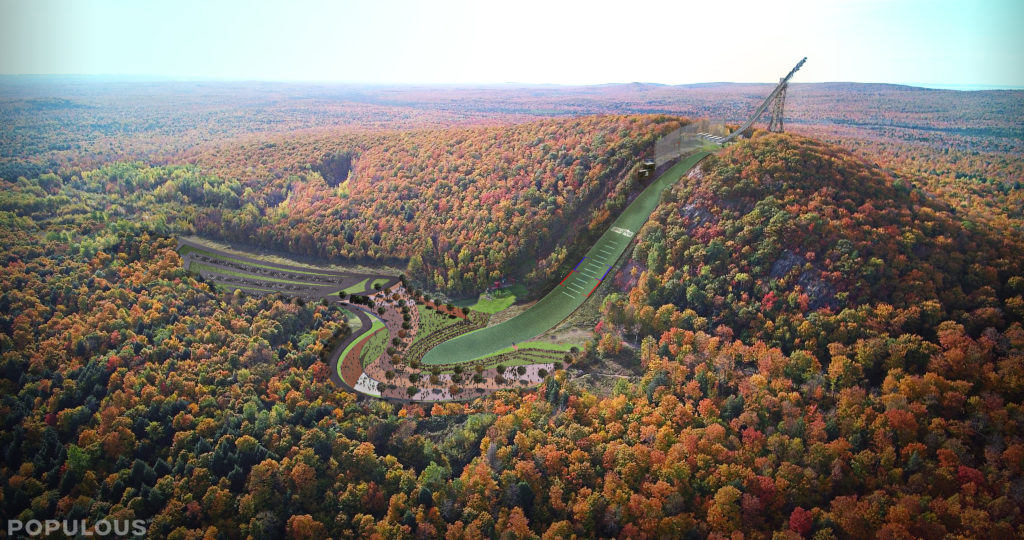Copper Peak and Pine Mountain, a pair of ski jumps located in the western Upper Peninsula, were jointly awarded a $10 million grant from the Michigan Legislature in the state budget bill that passed shortly before the end of the year. That money has been earmarked for renovations that will ultimately allow the region to host the highest-caliber international ski jumping competitions.
The funding will be doled out proportionately to the two facilities for their respective renovation projects. Pine Mountain’s improvements are projected to cost $2 million; Copper Peak has plans drawn up that are estimated to run $15 million to $18 million — some of which will be covered by fundraising from sponsors, private donors and additional grants.
Bob Jacquart, fundraising co-chair for Copper Peak, said that the renovations will be a game-changer — for the sport, for the region, and for Michigan as a whole — especially considering ski jumping’s massive following in Europe.
“It’s such a huge deal over there,” he said. “That’s the part that gets me excited: Thinking about how Ironwood and Copper Peak can do something good for this state. It’s a powerful opportunity.”
The town of Iron Mountain, where the Pine Mountain ski jump is located, already draws competitors, fans and tourists from around the world each year for an International Ski Federation Continental Cup. Pine Mountain’s ski jumping history dates back to 1939, and it is the only ski jump venue in the United States to host an International Ski Federation competition every year.
Meanwhile Ironwood’s Copper Peak, which is the world’s largest artificial-surface ski jump, hasn’t hosted ski jumping for nearly 25 years — though from 1970 until the mid 1990’s, it was a renowned destination for not only ski jumping but ski flying, a sport like ski jumping but at greater distances. After Copper Peak’s competition days went on hiatus in 1994, the hill made a name for itself as a tourist destination (thousands of visitors come each year to take in the 26-story view at the top of the jump’s tower) and, more recently, for hosting the Red Bull 400, the world’s steepest 400-meter race.
Jacquart said the renovations will once again bring ski jumping to Copper Peak and allow competitors to jump in warmer months, when conditions are safer and events are less prone to weather-induced cancellations.
Copper Peak’s renovations are anticipated to be completed by September 2020.

Another rendering of Copper Peak after renovations are completed in 2020. Already known for being a fall-color destination thanks to its sweeping views, Copper Peak aims to host annual ski jumping competitions in September.


